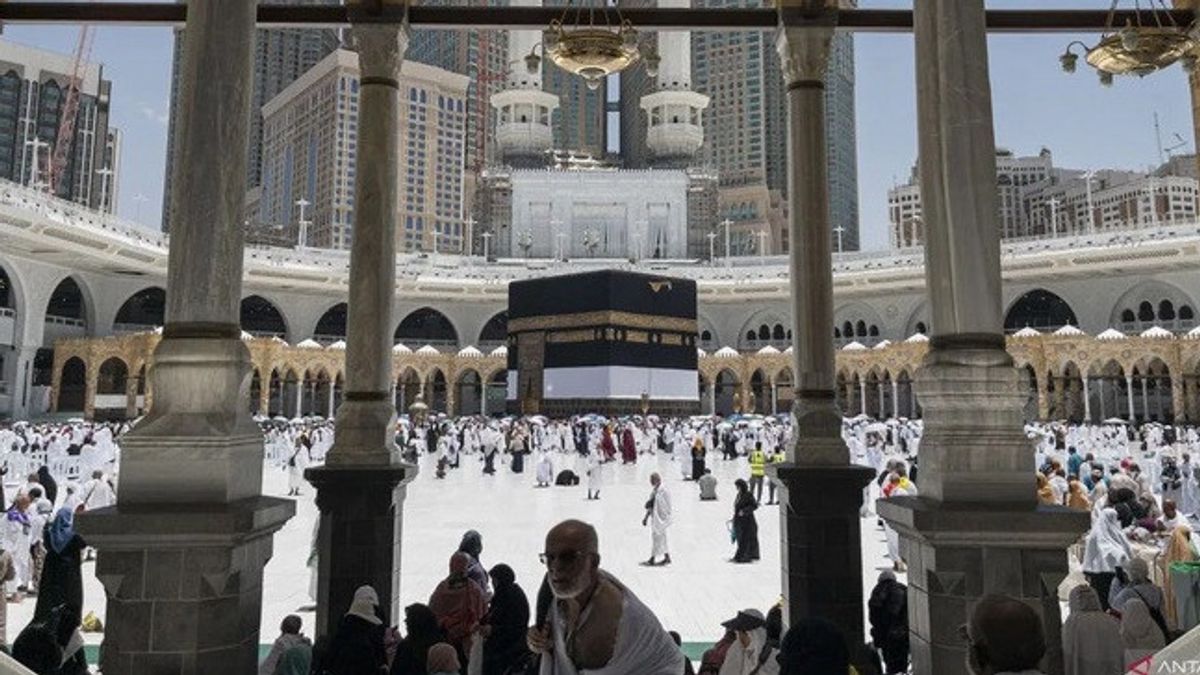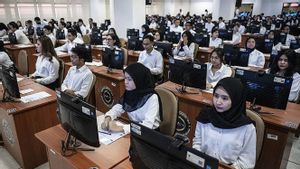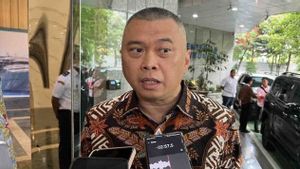JAKARTA Furoda hajj is currently an option for Muslims to carry out the pilgrimage without having to wait long. This year, celebrity Raffi Ahmad and Nagita Slavina with their families carry out the fifth Islamic pillars through the furoda hajj program.
Raffi Ahmad and his family left for the Holy Land to carry out the pilgrimage on Saturday (8/6/2024). They departed through the furodaluxury hajj program which requires a lot of money. Although Raffi did not mention how much it cost, the mass media estimated that the celebrity family had to spend more than Rp1 billion.
In a press conference before leaving for the Holy Land, Nagita Slavina's husband admitted that there was no problem having to spend a fantastic amount of money to fulfill his obligations.
"If you look at thenggeriya. This is actually because we want to worship, it's the important thing first," said Raffi Ahmad.
On the same occasion, Raffi was reluctant to mention the money he spent on going for Hajj. He admitted that he was not looking for the most expensive travel, but only those who could send the hajj well.
Raffi Ahmad is known not only to bring his wife, Nagita Slavnina, but also Amy Qanita, Rieta Amilia, Syahnaz Sadiqah, Nisya Ahmad, Caca Tengker, and three Rans Entertainment employees.
The furoda hajj actually originated from the Saudi Royal Government's policy of inviting certain people as guests of the honor of the king during the Hajj season. This furoda or mujamalah visa was given by the Kingdom of Saudi to people who are considered special in one country. This furoda hajj visa is the right of the Saudi Arabian Government to invite their partners as another award, respect and diplomatic support.
In its development, this visa is traded. Furoda Hajj is indeed an alternative to carrying out the pilgrimage for Muslims, because it does not follow the national quota. In Indonesia itself, the waiting period or number of queues based on each province is certainly different. In North Sulawesi, for example, the waiting period is 16 years. But this waiting period is different from South Kalimantan which reached 38 years.
However, the regular Hajj quota queue which for decades has made Indonesian Muslims choose other options to perform the pilgrimage. In addition to regular Hajj, Indonesia also has two other official ways that can be taken to perform the pilgrimage to the Holy Land, namely special Hajj or popularly known as ONH Plus, namely government quota Hajj with a departure queue of around 5-9 years. Hajj plus has a higher cost than regular Hajj with special facilities provided.
The last is furoda or non-coota hajj. The practice of furoda hajj was not recognized by the government because it was outside the official quota of Indonesian hajj mission groups. This regulation is contained in Law Number 13 of 2008.
But on the other hand, Saudi direction is the goal of providing a special visa called a mujamalah visa. The government has finally legalized the practice of furoda Hajj through Law No. 8 of 2019 concerning the Implementation of Hajj and Umrah.
Please note, furoda hajj is an independent Hajj service outside the official quota of the Indonesian government. Because they do not use the state quota, Muslims who use furoda hajj facilities can depart in the same year without having to queue.
SEE ALSO:
Hajj without queues is directly proportional to the costs that must be incurred by the congregation. Reported by lamanhajifuroda.id, the cost of the furoda hajj offered ranges from 19 thousand United States dollars or around Rp. 270 million.
With costs of hundreds of millions, Furoda hajj is often an option for Indonesian celebrities, as Raffi Ahmad and his family have done this year.
Given the high desire of Muslims to carry out the pilgrimage which is not accompanied by a limited quota, many dark-eye pilgrims do not comply with the rules for leaving for Hajj. Instead of using official documents and routes, they choose to leave without a legal visa.
Recently, 37 illegal pilgrims from Makassar, South Sulawesi, were reported to have been arrested by Saudi Arabian authorities. They were arrested for being caught using a visit pilgrimage visa to Saudi Arabia.
But after being arrested, 34 of the pilgrims were released and immediately sent home. The Indonesian House of Representatives also received reports from illegal pilgrims from Indonesia. Unmitigated, there is information that there are 100,000 Umrah pilgrims who have not been to the country so they can carry out the pilgrimage without using official Hajj visas.
In fact, the Saudi Arabian Senior Ulema Council issued a fatwa on the prohibition of performing the pilgrimage without permission. His party emphasized the need for a hajj permit for each congregation as a form of firm commitment and responsibility for the implementation of worship.
Obeying the prohibition regulations is part of obedience to Allah Swt and the Prophetullah saw, including to glorify the Land of Haram. The land of Haram refers to two holy cities of Muslims, namely Makkah Al-Mukarramah and Medina Al-Munawwarah.
For this reason, the holy pilgrimage should begin with various holy preparations as well. Instead of falsifying documents that have the potential to harm or rob other people of their rights in worship.
The mufti of the Kingdom of Saudi Arabia Dr. Fahd bin Sa'ad Al Majid also satirized illegal pilgrims with a religious question, "Has a Muslim started his pilgrimage in disobedience to Allah Subhanahu wa ta'ala?"
The English, Chinese, Japanese, Arabic, and French versions are automatically generated by the AI. So there may still be inaccuracies in translating, please always see Indonesian as our main language. (system supported by DigitalSiber.id)















